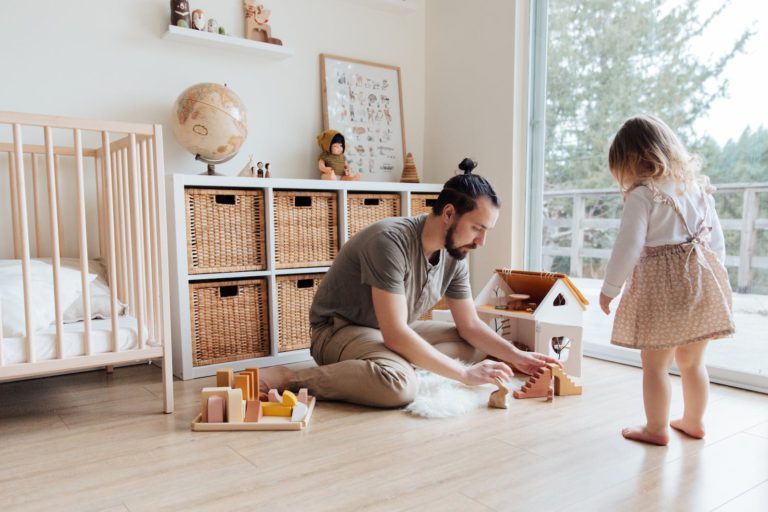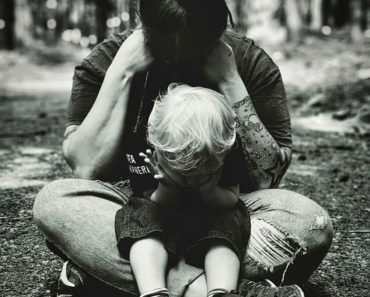Contents
- 1 Navigating Relationships After Traumatic Brain Injury: Understanding the Impact on Mental Health.
- 2 Understanding the Impact of Traumatic Brain Injury on Relationships
- 2.1 How can a traumatic brain injury affect relationships and what are some strategies for navigating these challenges in a healthy way?
- 2.2 What are some common misconceptions or stigmas surrounding relationships after a traumatic brain injury, and how can we break down these barriers to support better mental health?
- 2.3 How can individuals and their partners communicate effectively about the changes and limitations resulting from a traumatic brain injury, while also prioritizing their emotional well-being and maintaining a strong relationship?
- 2.4 Related Posts

Relationships after Traumatic Brain Injury: Navigating the challenges and finding a path to healing. Discover how traumatic brain injury can impact relationships and learn effective strategies for rebuilding trust, communication, and intimacy. From understanding the unique needs of both partners to creating a supportive environment, find guidance on creating fulfilling and resilient relationships post-brain injury.
Navigating Relationships After Traumatic Brain Injury: Understanding the Impact on Mental Health.
Traumatic brain injury (TBI) often has long-lasting effects on an individual’s mental health. It can lead to cognitive impairments, emotional instability, and changes in personality, all of which can significantly impact relationships.
One of the main challenges individuals with TBI face is adapting to the changes in their own behavior and emotions. They may experience frustration, mood swings, and difficulty controlling their anger, which can strain relationships with family, friends, and romantic partners.
It is important for loved ones to understand that these changes are a direct result of the brain injury. Instead of blaming or becoming resentful, it is crucial to provide support and empathy. Engaging in open and honest communication can help both parties navigate the challenges together.
Seeking professional help is also essential in managing the impact of TBI on mental health and relationships. A therapist or counselor experienced in working with TBI patients can provide valuable guidance and strategies to cope with the emotional and interpersonal challenges.
In addition to professional help, joining support groups can be beneficial. These groups offer a safe space to share experiences, exchange advice, and find reassurance that others are going through similar struggles.
Self-care plays a vital role in the recovery process as well. Individuals with TBI should prioritize activities that promote their mental well-being, such as practicing mindfulness, engaging in hobbies, and maintaining a healthy lifestyle. Taking care of oneself allows for better emotional regulation and strengthens relationships.
Ultimately, rebuilding relationships after a TBI requires patience, understanding, and resilience. Through education, communication, professional help, and self-care, individuals with TBI can improve their mental health and foster strong connections with their loved ones once again.
Understanding the Impact of Traumatic Brain Injury on Relationships
we will explore how traumatic brain injury (TBI) can affect relationships and the challenges individuals may face as they navigate post-injury relationships.
Traumatic Brain Injury (TBI) and Its Effects on Relationships
Discuss the impact of TBI on relationships, including changes in communication, emotional regulation, and overall relationship dynamics. Provide examples and statistics to support the discussion.
Coping Strategies for Individuals and Partners in Post-TBI Relationships
Present various strategies that individuals with TBI and their partners can employ to cope with the challenges that arise in their relationships. These strategies may include effective communication techniques, seeking professional help, and rebuilding trust and intimacy.
Supporting Post-TBI Relationships: The Role of Mental Health Professionals
Highlight the importance of mental health professionals in supporting individuals and couples affected by TBI. Discuss the services they can provide, such as therapy, counseling, and education on TBI-related issues. Emphasize the significance of collaborative efforts between healthcare providers, therapists, and loved ones in promoting healthy relationships after TBI.
A traumatic brain injury (TBI) can significantly impact relationships in various ways. The cognitive, emotional, and behavioral changes that often occur after a TBI can strain relationships and hinder effective communication. Here are some strategies for navigating these challenges in a healthy way:
1. Educate yourself and others: Learn about the effects of TBI on relationships and educate your loved ones as well. Understanding the changes and challenges can foster empathy and patience.
2. Open communication: Maintain open lines of communication with your loved ones. Express your feelings, frustrations, and needs while also encouraging them to share their thoughts and concerns.
3. Seek professional help: Enlist the support of therapists or counselors specializing in TBI to help navigate the challenges together. They can provide guidance and teach coping strategies.
4. Set realistic expectations: Recognize that the person with a TBI may have limitations and may require more time and effort to perform certain tasks or engage in social activities. Adjust your expectations accordingly.
5. Practice active listening: Actively listen to the person with a TBI by maintaining eye contact, paraphrasing, and showing empathy. This can improve understanding and reduce misunderstandings.
6. Establish routines: Consistent routines and structure can help provide stability and reduce anxiety for both the individual with a TBI and their loved ones.
7. Encourage self-care: Promote self-care for both yourself and the person with a TBI. It’s essential to maintain your own physical and mental well-being while supporting theirs.
8. Patience and flexibility: Understand that recovery from a TBI takes time and progress may be slow. Patience and flexibility are vital in adjusting to the changes and adapting to new circumstances.
9. Join support groups: Seek out support groups for individuals and families affected by TBI. Connecting with others who have similar experiences can provide emotional support and valuable insights.
10. Celebrate successes: Acknowledge and celebrate even the small achievements and milestones in the recovery process. This can help maintain motivation and positivity within the relationship.
Remember, each situation is unique, and what works for one relationship may not work for another. It’s important to remain adaptable, resilient, and seek help when needed.
What are some common misconceptions or stigmas surrounding relationships after a traumatic brain injury, and how can we break down these barriers to support better mental health?
One common misconception surrounding relationships after a traumatic brain injury (TBI) is that they are destined to fail or become strained. People often assume that the changes in behavior, mood swings, and cognitive challenges that can occur after a TBI will make it impossible for individuals to maintain healthy relationships. However, this belief is not accurate, as many individuals with TBIs go on to have successful and fulfilling relationships.
Another stigma surrounding relationships after a TBI is that the responsibility for maintaining the relationship falls solely on the uninjured partner. This misconception assumes that the person with the TBI is unable to contribute to the relationship or take on any responsibilities due to their injury. However, it is important to recognize that both partners have a role to play in maintaining a healthy relationship, and the person with the TBI can still contribute in meaningful ways.
To break down these barriers and support better mental health in relationships after a TBI, education and awareness are key. Providing accurate information about the effects of TBIs on relationships can help dispel misconceptions and reduce stigmas. It is crucial to emphasize that every individual’s experience with a TBI is unique, and the impact on relationships can vary widely.
Open communication and empathy are essential in supporting mental health in relationships after a TBI. Both partners should be encouraged to express their feelings, concerns, and needs openly. This includes discussing any challenges that arise as a result of the TBI and finding ways to address them together. Building a strong support network, which may include healthcare professionals, therapists, or support groups, can also be beneficial for both partners.
Adaptation and flexibility are crucial when dealing with the changes that come with a TBI. Both partners may need to adjust their expectations and find new ways of connecting and engaging in activities together. Patience and understanding are essential as the person with the TBI navigates their recovery journey.
Lastly, seeking professional help and counseling can provide valuable guidance and support for couples dealing with the aftermath of a TBI. A trained mental health professional can help both partners navigate the challenges, work through any emotional or communication issues, and develop effective coping strategies.
Through awareness, understanding, open communication, and professional support, we can break down the barriers and stigmas surrounding relationships after a TBI. By doing so, we can create an environment that supports better mental health for both partners and fosters healthy and fulfilling relationships.
How can individuals and their partners communicate effectively about the changes and limitations resulting from a traumatic brain injury, while also prioritizing their emotional well-being and maintaining a strong relationship?
Effective communication is key when navigating the changes and limitations resulting from a traumatic brain injury (TBI) and maintaining a strong relationship. Here are some tips for individuals and their partners:
1. Open and honest communication: Create a safe and open space where both individuals can express their feelings, concerns, and needs. Be honest about the challenges you face and listen actively to each other.
2. Active listening: Give each other undivided attention when discussing sensitive topics. Practice active listening by focusing on the speaker, summarizing what they say, and asking clarifying questions to ensure understanding.
3. Empathy and understanding: Show empathy towards your partner’s emotions and struggles. Remember that TBI can result in physical, cognitive, and emotional changes, which may impact their behavior and abilities. Try to understand their perspective and validate their experiences.
4. Patience and flexibility: Adjusting to the changes caused by TBI takes time and patience. Be understanding and patient with each other and recognize that it might be necessary to adapt plans or expectations to accommodate the limitations resulting from the injury.
5. Establishing routines and structure: Developing routines and structure can provide stability and help manage the challenges of TBI. Establishing predictable daily activities and setting realistic goals can be beneficial for both individuals.
6. Seeking support: Connect with support groups, therapists, or counselors who specialize in TBI. They can provide guidance, coping strategies, and help navigate the emotional journey after a TBI.
7. Self-care: Prioritize self-care for both individuals. This might include engaging in activities that promote emotional well-being, seeking therapy, practicing mindfulness, or maintaining a healthy lifestyle.
Remember, it’s essential to approach these discussions with love, understanding, and patience. Both individuals should actively work together to maintain a strong relationship while prioritizing their emotional well-being.
In conclusion, relationships after traumatic brain injury play a crucial role in the overall mental health and well-being of individuals. The impact of such an injury on personal connections can be profound, requiring understanding, patience, and adjustment from both partners. Communication, empathy, and seeking professional support are key to navigating the challenges faced in post-injury relationships. By recognizing the unique needs and adapting to the changes caused by traumatic brain injury, couples can foster resilience, intimacy, and a sense of shared growth. It is essential to remember that with dedication and support, love and connection can thrive even in the face of adversity.







